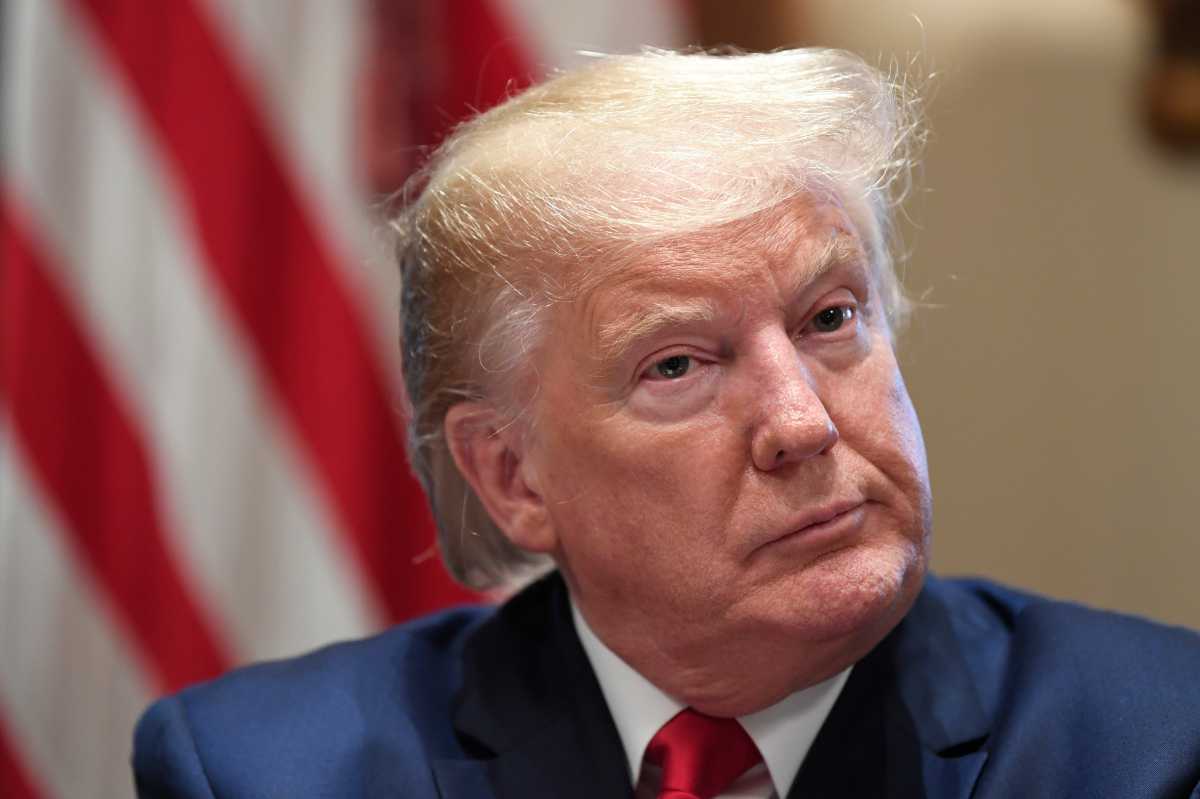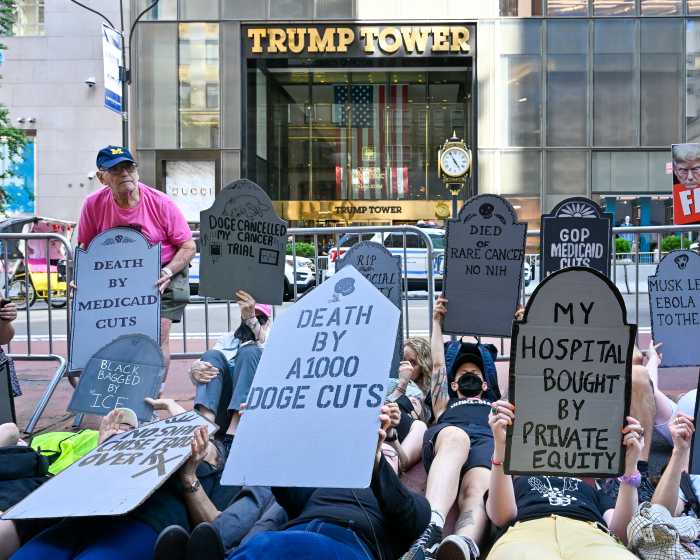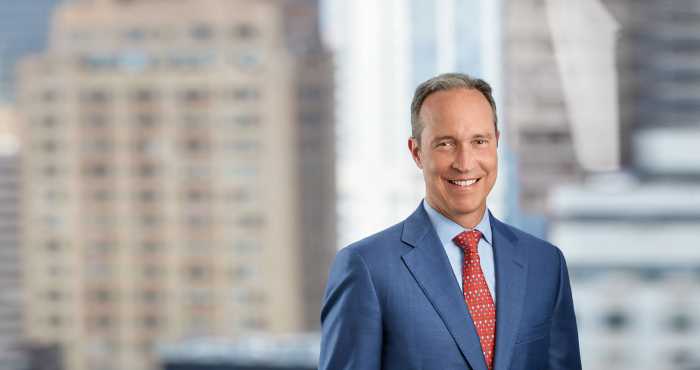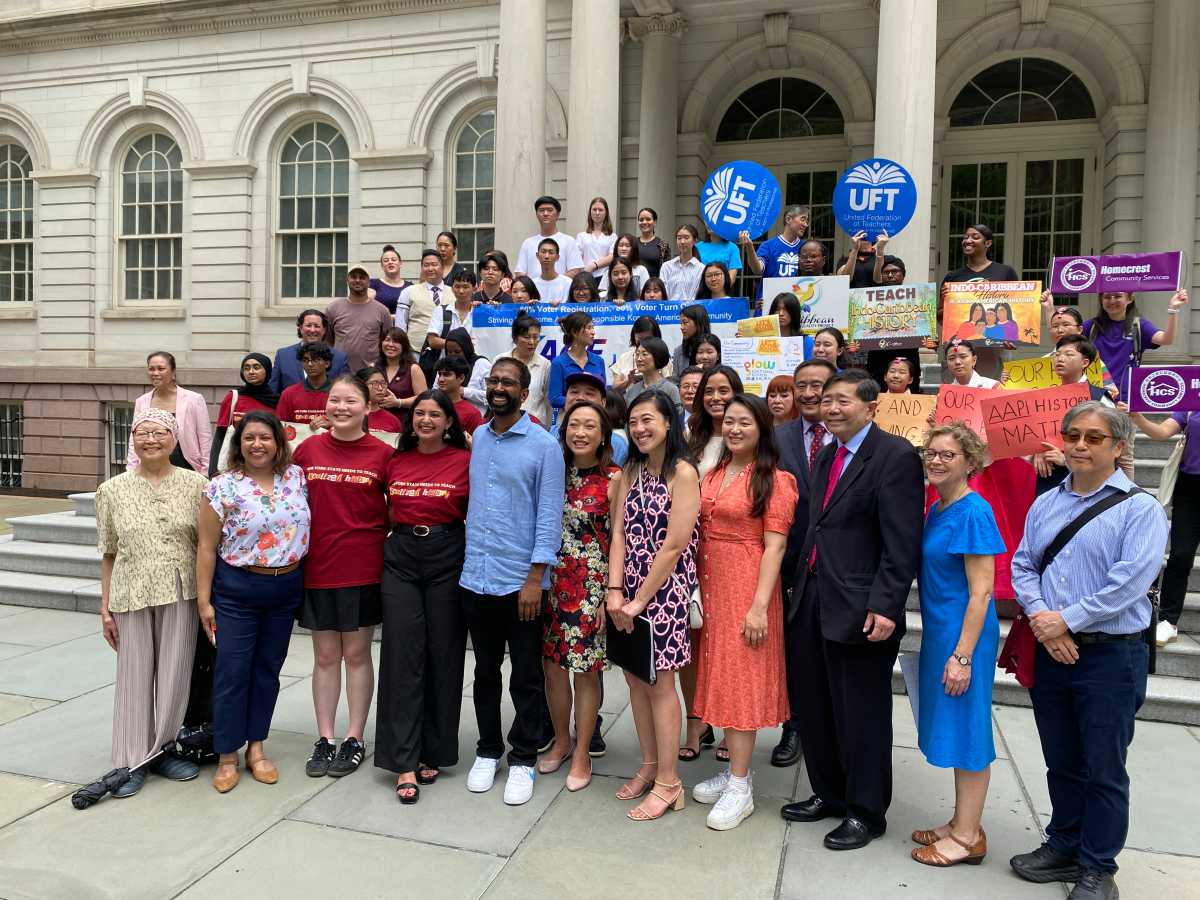President Donald Trump’s latest reasons for firing Marie Yovanovitch as ambassador to Ukraine: She was an “Obama person” who refused to hang Trump’s portrait in the U.S. Embassy. That’s false on both counts.
Trump’s pique about not having his picture displayed in a timely way — actually the fault of his administration, not the ambassador — came during a week of unfounded or distorted statements by the president about the impeachment inquiry and the political favor he sought from Ukraine.
A look at recent claims, as well as from Democratic presidential contenders in their latest debate:
Yovanovitch
TRUMP: “This ambassador that everybody says is so wonderful, she wouldn’t hang my picture in the embassy. OK? She’s in charge of the embassy. She wouldn’t hang it. It took like a year and a half or two years for her to get the picture up.” — Fox News interview Friday.
THE FACTS: She’s not the reason why Trump’s photo wasn’t displayed in the U.S. Embassy in Ukraine after his inauguration. Trump’s official portrait for display in federal facilities was not released by the White House until October 2017. Portraits for U.S. embassies came months after that.
Lewis Lukens, former deputy chief of mission at the U.S. Embassy in London, tweeted Friday: “I was in charge of the US embassy in London for much of Trump’s first year. We didn’t hang his picture either. Why? It took the WH almost 15 months to get official photos sent to embassies to hang. And we were instructed not to print other photos.”
The former ambassador to Georgia, Ian Kelly, tweeted: “Our official White House portraits did not arrive at Embassy Tbilisi until March 2018. This was because the WH was late getting them to all embassies.”
Yovanovitch’s attorney, Larry Robbins, told The Associated Press that the embassy in Kyiv hung Trump’s official portrait, along with Vice President Mike Pence’s and Secretary of State Mike Pompeo’s, “as soon as they arrived from Washington, DC.”
Trump previously accused Yovanovitch of leaving countries in disarray “everywhere” she went as a diplomat, wholly misrepresenting her record.
In any event, a president doesn’t need to give a reason for firing an ambassador.
‘Obama person’
TRUMP: “This was an Obama person.” — Fox interview.
THE FACTS: No, she is a nonpartisan civil servant who served under both Republican and Democratic administrations as a 33-year State Department employee.
She was first appointed as an ambassador to Kyrgyzstan and then Armenia by Republican President George W. Bush. Then she was named to the Ukraine ambassadorship by Democratic President Barack Obama in 2016. Trump dismissed her from that post in May.
Military aid
TRUMP: “Why isn’t Germany, France, the European Union, why aren’t all those countries in Europe, why aren’t they paying? Why is it always the United States the sucker? I got elected on that.” — Fox interview Friday.
THE FACTS: He’s incorrect that the U.S. is “always” the one putting up Ukraine aid.
European Union institutions have provided far more development assistance than the $204 million from Washington. Specific EU members, Japan and Canada also contribute significantly.
Since 2014, the EU and European financial institutions have mobilized more than $16 billion to help Ukraine’s economy, counter corruption, build institutions and strengthen its sovereignty against further incursions by Russia after its annexation of Crimea.
The U.S. is a heavy source of military assistance. The aid package held back by Trump as he pressed Ukraine to investigate Democrats was worth nearly $400 million. But NATO also contributes a variety of military-assistance programs and trust funds for Ukraine. In most such cases, the programs are modest and NATO countries other than the U.S. take the lead.
Too corrupt for aid?
TRUMP: “Why should we give money to a country that’s known corrupt?” — Fox News interview Friday.
REP. DEVIN NUNES of California, the top Republican on the House intelligence committee: Trump has good reason to be wary “of widespread corruption in that country.” — hearing Thursday.
THE FACTS: Trump’s defense that he withheld aid to Ukraine due to corruption concerns is shaky. Two weeks of hearings produced bountiful testimony that Trump was singularly focused on getting Ukraine to open investigations into Democrats.
In his first phone call with Ukraine’s new leader, in April, the White House said at the time that Trump discussed his interest in having Ukraine rein in widespread corruption. But in the recently released rough transcript of the call, he actually did not mention corruption at all.
Trump had $391 million in congressionally approved U.S. assistance withheld from Ukraine from July to September.
The Defense Department had already certified to congressional committees on May 23 that Ukraine had made enough progress on reducing corruption to receive the military assistance. Before the July hold on the aid, the Trump administration had approved sending aid to Ukraine nearly 50 times without holding it because of corruption concerns.
Witnesses testified that Trump did not articulate concerns about Ukraine corruption other than expressing interest into investigations that would benefit him politically.
In his July 25 call, Trump told Ukrainian President Volodymyr Zelenskiy as they discussed military aid, “I would like for you to do us a favor, though” and investigate Joe Biden, his son and Democrats going back to the 2016 U.S. election, based on a discredited theory involving purported Ukrainian interference in the election.
Trump ultimately released the aid, on Sept. 11, after Congress became aware of what he had done. A few days earlier, congressional committees had begun looking into the matter, aware that a whistleblower had a complaint in motion.
Ukraine and CrowdStrike
TRUMP, referring to Democrats: “The FBI went in and they told them, get out of here, you’re not getting — we’re not giving it to you. They gave the server to CrowdStrike, or whatever it’s called, which is a country — which is a company owned by a very wealthy Ukrainian. And I still want to see that server. You know, the FBI has never gotten that server. That’s a big part of this whole thing. Why did they give it to a Ukrainian company? Why?” — Fox News interview Friday.
THE FACTS: Trump’s statement is false in multiple ways.
CrowdStrike is not a Ukrainian company — it is based in Sunnyvale, California. It is not owned by a Ukrainian, but rather an American who emigrated to the U.S. as a child — from Russia, not Ukraine.
The cybersecurity firm made the original determination that Russia was responsible for the 2016 hack of Democratic emails that were subsequently disclosed by WikiLeaks. The company counts among its clients the National Republican Congressional Committee, for which it investigated email thefts by unidentified hackers during the 2018 campaign.
When Trump says the “FBI has never gotten that server,” he is referring to the fact that the FBI did not receive physical servers from the Democratic National Committee after its emails were hacked in the 2016 campaign.
Instead, the FBI relied on detailed forensics provided by CrowdStrike. The FBI confirmed those findings. Using that evidence, special counsel Robert Mueller’s team charged 12 Russian military intelligence officers with the hack.
Still, Trump persists not only in misidentifying the nationality of the owner and what country the firm is from, but in advancing the notion that Ukrainians hacked the DNC and made it look as if Russians did it.
The server
TRUMP: “A lot of it had to do, they say, with Ukraine. … They have the server, right, from the DNC, Democratic National Committee, you know. … Well, that’s what the word is. … That’s the way it was explained.” — Fox News interview Friday.
THE FACTS: Trump is shrugging off not only the week’s testimony of current and former aides at the hearing, but advice going back months from officials who told him such assertions are invalid.
None of the witnesses who testified at the hearings — including those the Republicans wanted to hear from — gave credence to Trump’s theory that Ukraine attacked the U.S. election and tried to make Russia look like the villain.
Several testified to the contrary, that there is no evidence of Ukraine interference.
Even before his July phone call pressing Ukraine’s president to investigate the theory, his own staff repeatedly told him it was “completely debunked,” Trump’s first homeland security adviser, Tom Bossert, said in September.
“Fictions,” a former senior director on the National Security Council for Russia and Europe, Fiona Hill, testified Thursday.
She told committee members: “I would ask that you please not promote politically driven falsehoods that so clearly advance Russian interests.”
Sondland
TRUMP: “I hardly know him, OK?” — Fox interview Friday.
TRUMP: “I don’t know him very well. I have not spoken to him much. This is not a man I know well. He seems like a nice guy, though. But I don’t know him well.” — remarks to reporters Wednesday.
THE FACTS: That’s not credible. Testimony by several officials revealed that Sondland, Trump’s EU ambassador, was in frequent contact with Trump around the time Trump spoke with Zelenskiy about doing a politically beneficial “favor.”
Tim Morrison, the former NSC Russia and Europe senior director, who took over from Hill in July, told House investigators that Sondland and Trump had spoken approximately five times between July 15 and Sept. 11 — the weeks that $391 million in U.S. assistance was withheld from Ukraine before it was released as Trump pressed for the favor. Morrison said the ambassador “related to me he was acting — he was discussing these matters with the president.”
Sondland himself changed his testimony Wednesday to acknowledge more contacts with Trump than previously revealed.
As recently as Oct. 8, Trump had tweeted that Sondland was a “really good man and great American.”
Sondland donated $1 million to Trump’s inaugural committee before being named the U.S. ambassador to the European Union.
But Trump quickly became less familiar with his ambassador when Sondland testified that the president wanted a Ukrainian investigation of Democrats as a condition for his releasing U.S. military aid to that country.
Apple manufacturing
TRUMP: “Today I opened a major Apple Manufacturing plant in Texas that will bring high paying jobs back to America. Today Nancy Pelosi closed Congress because she doesn’t care about American Workers!” — tweet Wednesday.
THE FACTS: Neither happened.
Trump visited a factory in Austin, Texas, that has made the Mac Pro for Apple since 2013.
Apple announced in September that it would continue having the Mac Pro line made in Austin, after the Trump administration agreed to waive tariffs on certain computer parts from China. It also plans to expand its already deeply rooted business in Austin and said Wednesday it has started construction of its new campus in the city.
None of that equates to Trump’s false claim to have opened an Apple plant Wednesday.
Meantime, the House worked into Wednesday evening, after Trump’s false tweet that Pelosi had shut Congress, and again Thursday before breaking for Thanksgiving week.
Impeachment hearing
REP. ADAM SCHIFF, Democratic chairman of the intelligence committee: “I think the American people can be forgiven if they have the same impression, listening to some of the statements of my colleagues during this hearing, that Russia didn’t intervene in our election. It was all the Ukrainians.” — hearing Thursday.
HILL: “Based on questions and statements I have heard, some of you on this committee appear to believe that Russia and its security services did not conduct a campaign against our country and that perhaps somehow for some reason Ukraine did. This is a fictional narrative that is being perpetrated and propagated by the Russian security services themselves.” — hearing Thursday.
REP. ELISE STEFANIK, Republican of New York: “Not a single Republican member of this committee has said that Russia did not meddle in the 2016 elections. … To have our Democratic colleagues say these untruthful statements just reeks of political desperation.” — hearing Thursday.
THE FACTS: Stefanik may be right that Republicans on the committee did not explicitly deny that Russia attacked the U.S. election. Yet Schiff and Hill may also be right in saying that Republicans left that impression at the hearings.
Some Republicans on the committee repeatedly gave credence to the conspiracy theory that holds that Ukrainians actually hacked the Democratic National Committee emails, perhaps with a server that was in their country, and made it look as if Russia did it. To buy into this theory is to discount Russian culpability.
A 2018 report by the then-Republican majority of the House Intelligence Committee agreed with U.S. intelligence agencies that Russia interfered in the election, but disagreed with parts of the agencies’ assessment that said Russia did so to help Trump.
‘Kangaroo court’
TRUMP: “Right now you have a kangaroo court headed by little shifty Schiff, where we don’t have lawyers, we don’t have witnesses, we don’t have anything.” — Cabinet meeting Tuesday.
THE FACTS: Depends on the meaning of “we.” Republicans on the committee had a lawyer asking questions of the witnesses, so it’s not true that they had no legal representation. And several witnesses were invited at the request of Republicans on the committee.
It’s also true, though, that Trump himself did not have a lawyer speaking for him at the hearings. That’s not unusual. The inquiry is meant to be a fact-finding process and the president is not charged with anything.
He will have legal representation if the House Judiciary Committee moves ahead to draft articles of impeachment against him.
— Hope Yen and Calvin Woodward
Associated Press writers Eric Tucker, Mary Clare Jalonick, Lisa Mascaro, Lynn Berry, Mark Sherman, Kevin Freking, Ellen Knickmeyer and Ricardo Alonso-Zaldivar in Washington, Collin Binkley in Boston, Kathleen Ronayne in Los Angeles and Amanda Seitz in Chicago contributed to this report.






























